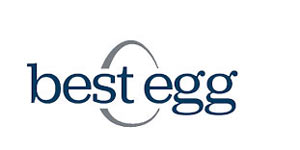Call Loan: Your 101 Guide
Aug 31, 2024 By Kelly Walker
There are many types of loans you may encounter in your financial life. Among these, you may have heard of call loans or money loans. So, what is a call loan, and how do they work?
Call loans, called money loans. Do banks grant short-term loans to stockbrokers? Stockbrokers commonly use them to finance stock and commodity transactions. Call loans are characterized by very short maturity periods – typically overnight, for just one day, or occasionally for two to four days.
Call Loan in Banks
When a stockbroker wishes to purchase securities for its clients but lacks sufficient funds, it may request a call loan from a bank. The bank lends funds to the stockbroker at an agreed interest rate overnight. The stockbroker then uses these funds to purchase securities. Once the securities have been purchased, they are deposited with the lending bank as collateral against the loan.
How is it different from other loans?
The key feature distinguishing call loans from other types is that the lender, in this case, the bank, can "call" the loan back at any time. This means the bank has the right to demand the return of their funds, along with any accrued interest, at any moment. As such, call loan interest rates are higher than other short-term loans of similar maturity to account for this additional risk.
It’s important to remember that the bank may call the loan back too
The bank may decide to call the loan back for several reasons. For example, if the value of securities as collateral declines significantly, the bank may "call" the loan asking for immediate repayment. Banks may call loans back simply to release funds for other purposes or investments.
Main Characteristics of Call Loans
Short maturity periods
Call loans typically have very short maturity periods, often only overnight or for one to four days. This is because they are meant to provide stockbrokers with flexible short-term funding to finance security purchases. Brokers need funds quickly to take advantage of investment opportunities and market movements, so longer-term loans are unsuitable.
Higher interest rates
Call loan interest rates tend to be higher than rates on loans of similar maturity. This is because banks are compensated for the risk that they may have to call the loan back at any time suddenly. Since banks have the flexibility to demand repayment suddenly, call loans are considered riskier for borrowers, so they command higher rates.

Collateral requirement
Since call loans are of very short duration and higher risk, banks require collateral to secure the loans. The securities that the funds are used to purchase are deposited with the lending bank. This allows the bank to sell the securities if needed to recoup their funds plus interest in the event of default.
They are "Callable"
The most distinctive characteristic of call loans is that banks can "call" the loans back at any point, demanding immediate repayment of principal plus interest. This provides banks flexibility to manage funds and react quickly to changes in market conditions or the creditworthiness of borrowers. However, it also means borrowers may suddenly have to come up with large sums of cash on short notice.

The Role of Call Loans in Financial Markets
Call loans play an important role in the functioning of financial markets. Since brokers typically buy large quantities of securities for themselves and clients, call loans provide a crucial source of short-term financing for these activities. Without call loans, brokers would have much more constrained abilities to execute trades.
They Come With Their Own Set of Challenges
Call loans also introduce risks and operational challenges for both lenders and borrowers. Trends like declining collateral values, increasing interest rates, and rising market volatility can all impact the call loan market. For example, during extreme market turmoil, lenders may mass "call" many loans while seeking repayment. This happened during the global financial crisis of 2008 when call loan markets essentially froze up.
Call Loan Freezing During the 2008 Financial Crisis
As difficulties in credit and housing markets snowballed into a full-blown financial panic, banks became extremely hesitant to lend - including for call loans.
Stock markets plunged rapidly in late 2008, with the S&P 500 dropping over 38% from peak to trough. As stock prices fell, the collateral value behind many existing call loans declined. This prompted banks to massively "call" loans, demanding the return of principal with accrued interest from borrowers.
In October 2008 - at the height of the crisis - Goldman Sachs had to come up with $15 billion in 3 days to repay ‘called loans’ from various banks. Many other brokerage firms and hedge funds faced similar situations of scrambling to repay large sums to banks calling loans back quickly.
Conclusion
Call loans are a common yet unique type of short-term bank loan. They are characterized by very short maturity periods, higher interest rates due to their "callable" feature, and collateral requirements. The lender also can demand immediate repayment at any time. They provide an important source of flexible funding for stockbrokers. But they also come with risks and challenges for all parties involved. With this background, you now understand what a call loan is and its role within the broader financial system.
Frequently Asked Questions
Q: Why are call loans called "call loans"?
A: Call loans are called that because the lending bank can "call" the loan back anytime. They can demand immediate repayment of both principal and interest. This "callable" feature distinguishes call loans from other types of short-term loans.

Best LLC Filing Companies

How to Make Smart Financial Decisions as a Young Professional: Rent or Buy?

Best Egg Personal Loans Review

Best Mortgage Lenders Of 2023 If You Have A Bad Credit

Best Student Loans

Everything You Need to Know About Understanding Form 1099-MISC

The Complete Guide to Form 6251: Alternative Minimum Tax-Individuals

Personal Loans vs. Car Loans: Which is Right for You?

Nelnet Student Loan Servicing Review

